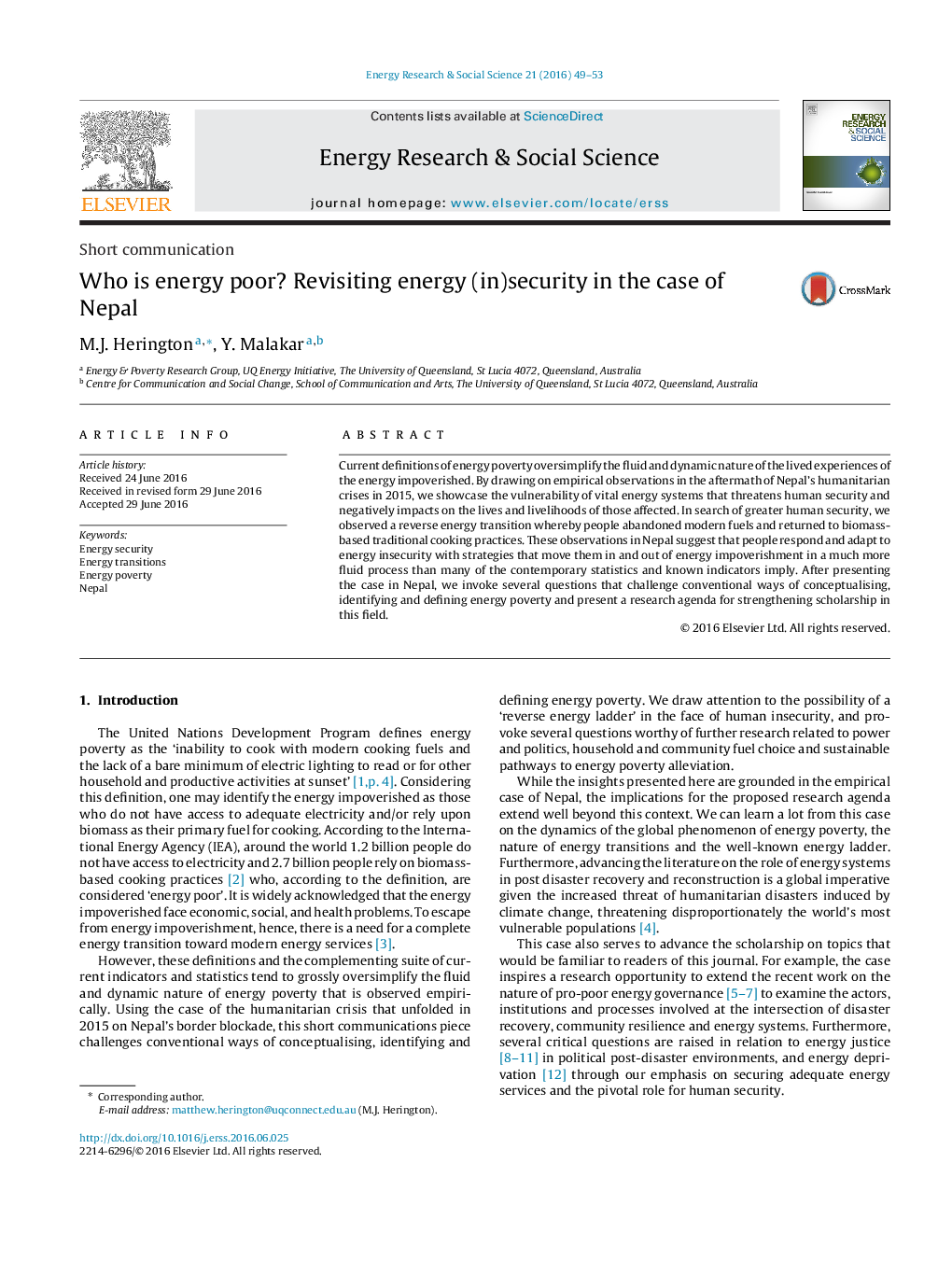| Article ID | Journal | Published Year | Pages | File Type |
|---|---|---|---|---|
| 108132 | Energy Research & Social Science | 2016 | 5 Pages |
Current definitions of energy poverty oversimplify the fluid and dynamic nature of the lived experiences of the energy impoverished. By drawing on empirical observations in the aftermath of Nepal’s humanitarian crises in 2015, we showcase the vulnerability of vital energy systems that threatens human security and negatively impacts on the lives and livelihoods of those affected. In search of greater human security, we observed a reverse energy transition whereby people abandoned modern fuels and returned to biomass-based traditional cooking practices. These observations in Nepal suggest that people respond and adapt to energy insecurity with strategies that move them in and out of energy impoverishment in a much more fluid process than many of the contemporary statistics and known indicators imply. After presenting the case in Nepal, we invoke several questions that challenge conventional ways of conceptualising, identifying and defining energy poverty and present a research agenda for strengthening scholarship in this field.
